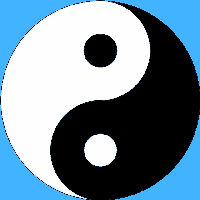What are the Health Benefits of Tai Chi?
Mind
- Good practice requires a flowing, detached, conscious, meditative state of mind.
- This state works to free the mind from static negative mental patterns and leads to greater consciousness.
- This is very helpful with anxiety, depression and anger patterns.
- Generally one develops greater stillness of mind in every day life and greater mental energy.
- It is also normal to finish a session feeling happy!
Body
- Performance of the Tai Chi forms requires a high level of relaxation and your body takes this out into every day life with all of its benefits.
- During practice Chi / consciousness energy circulates throughout all of the energy merideans of the body.
- Old physical tensions and trapped energy are opened up allowing the practitioner to recover their vitality.
- The body gets exercised without straining the heart or anything else and so Yang Tai Chi in particular is ideal for people with weak health.
- Tai Chi gently develops strength in the legs and so is very good for rebuilding physical health and developing grounding in a persons energy. Nb. Chen Laojia is appropriate for those with a strong physical constitution only.
- Balance & Coordination in particular improve. Useful for everyone, it is of particular importance in older age for reducing falls which are a major cause of serious health issues.
- As well as the muscles, the joints themselves relax and open with long term practice and so it is of enormous value in maintaining bodily comfort and mobility, especially with the onset of arthritis.
- In fact it is of all round benefit to the circulatory and digestive systems strengthening the internal organs including the heart and liver and nourishing the whole body.
- Generally Tai Chi will assist in many conditions of dis-ease because it helps the mind and body learn to be at ease together.
How to achieve the Health Benefits of Tai Chi?
Taichi learnt and practised in a natural way is the most beneficial for health purposes. Forcing the body or 'pushing' with physical discomfort is not beneficial in the long run, except for people who learn from a young age and have a vitality able to cope with this.
Patience is required from both the teacher and the student, to keep to a stance appropriate to the student's health and level, generally high and to let go of ambition in terms of achieving a good visual performance of the form.
Taichi is not a performance art, but an internal movement art and the greatest progress may be had in learning just a few movements, the beginning of the 24 say, or the first stage of Yang 85 and doing them well with genuine movement from the dantian with the whole body moving as one.
This can bring about real change and health benefits in the body beyond what most people can imagine even.
Once the mind-body is more 'sung' i.e. able to be relax very deeply with capacity to sink ones Qi, then progress on to the longer sequences can deepen the healing process, so that each performance of the form turns into a transformative process with physical changes occurring during and just after the performance, and also at night as the body integrates the work.
Performance of the forms as outer or semi-outer exercises is also beneficial and not a waste of time, but the taichi tradition goes much deeper than this and the consequent health benefits can be much greater.
The natural movement of life is circular or spiral in form. It can be found in every aspect of nature, but is generally weak in human beings who have moved away from their natural heritage. Taichi is about the body re-learning this movement or Dao within and it is this along with years of patient practice which produces the deep rejuvenative health benefits of taichi.
From the author's experience, a meditative practise such as Vipassana with a strong body awareness focus can work well alongside the taichi. I have also combined the work with spontaneous movement work, Katsugen from Seitai and Seiki. 'Miracles' are possible, but real change still takes time and much patience.
There are many ways to respond to a health issue that one might have. In Western society we are conditioned to seek out the fast fix and though at times this might release one from symptoms in a superficial way, the underlying weakness in your body-mind will still be there and will manifest later in another form.
When one turns instead to Taichi, Meditation and other Movement forms, every aspect of who you are changes. The journey is about growth and living who you really are in fullness, not about getting rid of symptoms or conditions.
In fact if one focuses on 'getting rid of the pain', then progress is likely to be slow or non-existant. Focus instead on each moment's taichi and do it well. It may not be easy, but this is how it works. The rewards for your efforts are likely to be very great.
Slowly but surely, the symptoms of discomfort will fade away, their purpose as a form of guidance from the whole of 'who you are' having been achieved, and you re-aquire your original health and vitality.
Taichi is about achieving a comfortable body, quiet mind and grateful, happy heart and keeping this state through to old age until life is complete.
When you work to achieve this for oneself and make progress, you are also working for the same for those around you, those you meet along your way and for the nature surrounding you, so ultimately the health benefits of taichi are what life is all about...
